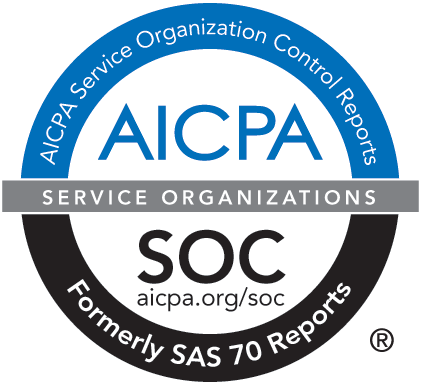Cryptic Currency
October 21, 2020 - Whether or not one believes cryptocurrency is a sound investment, the cryptocurrency market is expected to grow 11.2% by 2027, according to Forbes Business Insights. Others estimate the growth will be even higher. But what exactly is cryptocurrency?
While cryptocurrency is so called because it is secured by cryptography (a method of protecting information through the use of codes), the digital currency itself can seem cryptic to many nonprofits – mysterious and obscure. But, nonprofits need not be in the dark about this growing currency. That’s why we’re here to shed some light.
WHAT IS CRYPTOCURRENCY?
As mentioned above, cryptocurrency is a digital currency secured by cryptography. Cryptocurrencies typically use a distributed public ledger technology called blockchain to manage and record all transactions. In addition to being highly secure, this technology allows cryptocurrency to remain decentralized, free from the control of banks or governments, and this is a large part of the currency’s appeal.
Bitcoin was the first decentralized cryptocurrency in 2009 and this year its "real" dominance is at about 80% of the cryptocurrency market. Since then, over 6,000 other cryptocurrencies, or altcoins, have been created.
The entire cryptocurrency market is valued at $379 billion, according to CoinMarketCap as of October 21, 2020. Many of these currency holders are charitably minded. In fact, CryptoGivingTuesday reports that over $200 million in cryptocurrency has been donated to charities. Cryptocurrency donations represent 1-5% of the payment methods used for charitable donations, according to 2019’s Global NGO Technology Report.
WHAT DOES THIS MEAN FOR NONPROFITS?
Let’s consider the benefits and potential risks of a nonprofit choosing to accept donations in the form of cryptocurrency.
TAX BENEFIT
The IRS treats cryptocurrency as property, so donors of cryptocurrency do not have to pay capital gains tax on the appreciated value of their cryptocurrency, and charities can receive the full value of a donation.
For example, let’s say John has cryptocurrency valued at $100,000. He could:
- sell the cryptocurrency, pay capital gains tax on the appreciated value, then donate the after-tax proceeds to his favorite charity, or
- he could find a charity that accepts cryptocurrency, make a direct donation of his cryptocurrency, avoid capital gains tax exposure, and take a charitable deduction in the full amount of the fair market value of his donated cryptocurrency.
MOTIVATED DONORS
In our example above, John would be motivated to choose option 2, and in that case, he’d be looking for a charity that accepts cryptocurrency.
POSITIONING
Only 2% of United States charities accept cryptocurrency, according to the Global NGO Technology Report, but that number is growing. By choosing to take this method of payment now, a nonprofit can position itself as innovative and catch the attention of those donors who are looking to give in cryptocurrency.
NEW DONOR POOL
Millennials are less likely to have hard currency in their wallet and are more likely than other generations to invest in cryptocurrency. In fact, 17% of them already have while nearly half of those between the ages of 18-34 believe most people will be using Bitcoin in ten years. Millennials are typically socially conscious, tech-savvy, and innovative. Nonprofits that choose to accept cryptocurrency will be connecting with these younger, charitably minded individuals who believe digital currency is the way of the future.
LOW TO NO PROCESSING FEES
Cryptocurrency is bought and sold on trading exchanges, like Coinbase or BitPay. As there are no banks or credit card companies involved in these transactions, the processing fees can be much lower. Some exchanges have eliminated fees altogether for nonprofits, so the organization receives the full value of the donation. Additionally, without the fees of wire transfers or international credit card payments, organizations can more easily accept gifts from international donors.
UNCERTAINTIES
There is some uncertainty regarding the cryptocurrency market as it is still relatively new and government regulations are evolving. Additionally, cryptocurrency is uninsured and while blockchain technology itself is highly secure, the trading exchanges can be hacked and compromised. However, some exchanges are working to implement technology security protocols to protect their customers and alleviate these concerns.
WHAT SHOULD NONPROFITS CONSIDER BEFORE ACCEPTING CRYPTOCURRENCY?
Nonprofits will want to understand how to accept gifts of cryptocurrency and consult with tax and legal advisors before doing so.
VALUING THE GIFT*
Because the IRS treats cryptocurrency as property, gifts over $5000 will generally require a qualified appraisal. Finding a qualified appraiser of cryptocurrency could prove difficult for a donor. However, HighGround is available to help your donors find a qualified appraiser.
RECEIVING THE GIFT
The value of cryptocurrency is based on a supply and demand pricing model, which causes significant price volatility. Unless you want to be in the “win big/lose big” game, HighGround recommends the immediate liquidation of a gift of cryptocurrency so as not to lose its value. HighGround is able to accept and liquidate gifts of cryptocurrency on behalf of our nonprofit client partners.
GIFT ACCEPTANCE POLICY
Will your organization accept cryptocurrency? Will you hold the currency or immediately liquidate? Are there minimums or maximums you will require for these gifts? It is important to develop a gift acceptance policy for how your nonprofit will handle a gift of cryptocurrency. The HighGround legal team can work with you to develop a policy that serves your organization’s mission.
With this cryptic currency demystified, you can consider what is best for your organization. As you do, if you have any questions about accepting gifts of cryptocurrency, please call our legal team at 214.978.3300. We would be happy to help you.
*The IRS released a memorandum on January 13, 2023 concluding that a qualified appraisal is required when a donor claims a charitable contribution deduction exceeding $5,000 for donated cryptocurrency. The IRS accepts no reasonable cause excuse.



